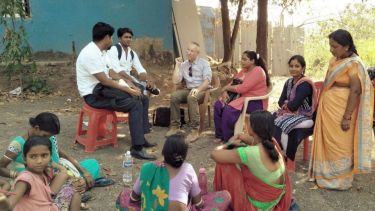Post(colonial) penalities

Project start and end dates
2014 --
Research team members
Background and aims of the project
The project examines the challenges faced by societies that achieved independence from colonisers but have struggled to escape their colonial heritage. This is particularly acute in the domain of punishment and control, as reflected in the continuing prominence of colonial laws, institutions and infrastructure (eg, prison facilities) in many parts of the global south. My work on the persistence, or stickiness, of colonial logics in postcolonial India was awarded Theoretical Criminology's best article prize in 2017 (Postcolonial penality: Liberty and repression in the shadow of independence, India c. 1947).
I am currently working with colleagues from the Tata Institute of Social Sciences (Mumbai) and Jawaharlal Nehru University (Delhi) on colonial-postcolonial continuities of control experienced by nomadic hunting communities at the periphery of contemporary Indian society.
This program of research has led to a number of publications, including the below, plus a chapter in the forthcoming Palgrave Handbook of Criminology and the Global South (2025).
- Brown M, Jadhav VK, Raghavan V & Sinha M (2021) . Punishment and Society, 23(5), 675-696.
- Brown M (2021) . Critical Criminology, 29(3).
- Brown MM (2018) . Law and Social Inquiry, 43(4), 1391-1426.
- Brown MM (2018) . State Crime Journal, 7(2), 173-198.
- Brown M (2017) . Theoretical Criminology, 21(2), 186-208.
Chapters
- Brown M (2023) , The Routledge International Handbook on Decolonizing Justice (pp. 380-390). Routledge
- Brown MM (2018) In Carrington K, Hogg R, Scott J & Sozzo M (Ed.), The Palgrave Handbook of Criminology and the Global South (pp. 83-104). Cham: Palgrave Macmillan.
